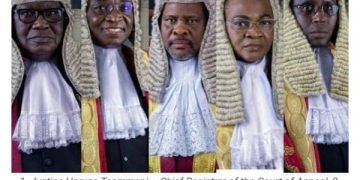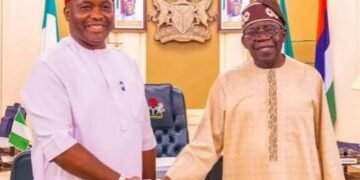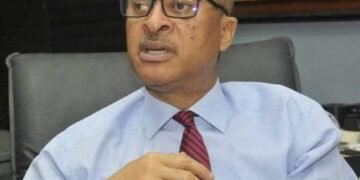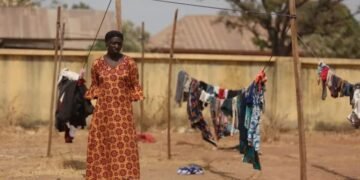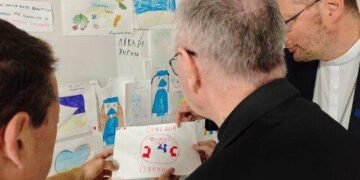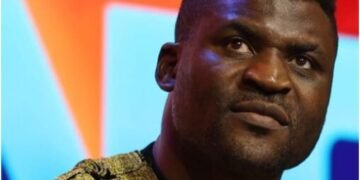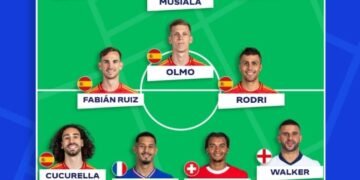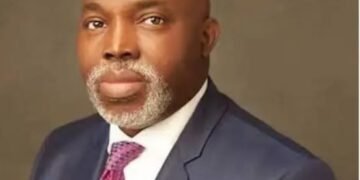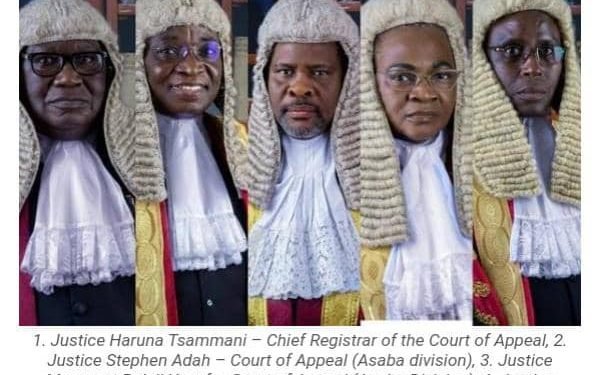By Okey Ndibe
Bola Ahmed Tinubu has for three months been Nigeria’s putative president, but the search for the real man behind the mask remains a puzzling exercise.
Both the extant petitions against Tinubu’s ostensible triumph in the 2023 presidential election and a case filed against him in the US bear on the same perplexing question: Who is Bola Ahmed Tinubu?
Nigeria’s political space is chockful of shadowy characters.
You can find within the country figures who received a “doctorate” degree before they passed their school cert; those whose “degrees” are from alleged academic institutions you can’t locate; those who parlayed criminal records at home or abroad into political capital; those whose declared age makes them much younger than their known younger siblings; and those who have attained billionaire status, not because they own any business, but through “serving” in one public office or another.
In a country rife with such biographical absurdities and mendacities, Tinubu is in a league all by himself.
The man who currently occupies Nigeria’s highest political office is a mystery squared. Nobody can vouch that his current name corresponds with his birth name. His date of birth is a matter of contention. His educational career is cloaked in a fog of unanswered questions.
Few, if any, Nigerians can say which elementary and secondary schools he attended. How many people can name one classmate of Tinubu’s during the emi-lokan president’s span in grade school?
To the extent that Tinubu earned a university degree, it happened in the US, specifically at Chicago State University. What certificates did he present to CSU prior to his admission? When did he graduate from the university?
Nigerians should be mighty interested in these questions. Atiku Abubakar, presidential candidate of the Peoples Democratic Party (PDP), has a vested interest in them.
He’s pursuing a lawsuit in the US to compel the university to divulge basic information about Tinubu. Given privacy protection laws in the US, Atiku’s lawsuit may be a Hail Mary.
But it would amount to inexcusable judicial dereliction for Nigeria’s presidential election petition tribunal to shirk a responsibility to pronounce on the matter. In no other job placement would such laxity on a candidate’s bio be permissible.
An applicant for a lowly clerical position in a local government area would not be granted a first, much less second, consideration if she or he did not present incontrovertible proof of date of birth, place of origin, and educational attainment.
Tinubu, his acolytes, and officials of the Independent National Electoral Commission (INEC) insist that he won the presidential polls fair and square. Yet, at each turn, their conduct belies their pronouncement.
You’d expect a man confident in the legitimacy of his victory and an irreproachable electoral umpire to be always and everywhere enthusiastic to demonstrate their claims.
Yet, Tinubu and his All Progressives Congress (APC) joined INEC in pleading with the election tribunal to bar cameras from the courtrooms. I’d like to hear them explain how their position, bizarrely adopted by the justices, advanced the interest of transparency.
Truth thrives in daylight; falsehood craves darkness.
Nigerians [have received] the electoral tribunal’s verdict. For those who followed the case with attention and dispassion, there [could have been] only be one determination: that Tinubu was far from victorious in the election, and that INEC acted in defiance of its own polling protocols and criteria that must be met by the triumphant candidate.
But dare we expect the judges to do the right—even if unprecedented—thing?
. Justice Haruna Tsammani – Chief Registrar of the Court of Appeal, 2. Justice Stephen Adah – Court of Appeal (Asaba division), 3. Justice Monsurat Bolaji-Yusuf – Court of Appeal (Asaba Division), 4. Justice Moses Ugo – Kano division, 5. Justice Abba Mohammed – Ibadan Court of Appeal
- Justice Haruna Tsammani – Chief Registrar of the Court of Appeal, 2. Justice Stephen Adah – Court of Appeal (Asaba division), 3. Justice Monsurat Bolaji-Yusuf – Court of Appeal (Asaba Division), 4. Justice Moses Ugo – Kano division, 5. Justice Abba Mohammed – Ibadan Court of Appeal
We have grounds for pessimism. One is the just-mentioned absence of precedence. Nigerian courts have an established trend. They take the convenient path that any enthroned president, even if manifestly illegitimate, ought to be validated.
There are the many strange violations that marked, and marred, the bungled presidential election. It all suggests that the fraudulent fix was long in, the electoral breaches baked into every aspect of the polls. And then, there’s the tribunal’s disturbing decision to shut off direct public access to its proceedings.
Even so, there are certain dynamics capable of shaking things up and encouraging the jurists to veer off this well-beaten path of judicial timidity and moral cowardice. By far the most consequential factor at play is unflagging youth engagement.
The armada of young people who came out to vote, and then saw their votes squelched by a criminal tag team of APC operatives and electoral officials, have reconstituted themselves into an army of monitors. They’re auditing the goings-on in real time.
They are geniuses at gathering information. In addition, they possess amazing dexterity in the dissemination and deployment of information to indict or unmask evil doers.
In three short months, Tinubu has eviscerated his predecessor, Muhammadu Buhari’s, record in producing mass destitution, widespread disaffection, and burgeoning despair. No question, this unknown and (so far) unknowable president had started off with some grudging goodwill. However, he has since squandered it all.
Nigerians used to say that nobody could equal Buhari in incompetence and the propagation of suffering. It’s as if, in a few months, Tinubu has decided to handily beat his predecessor in every index of bad governance.
You can count on this: a finding that Tinubu’s mandate was obtained illicitly would be music to the ears of Nigerians. Especially the youth.
